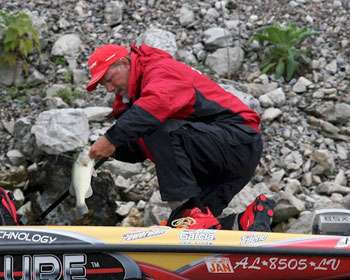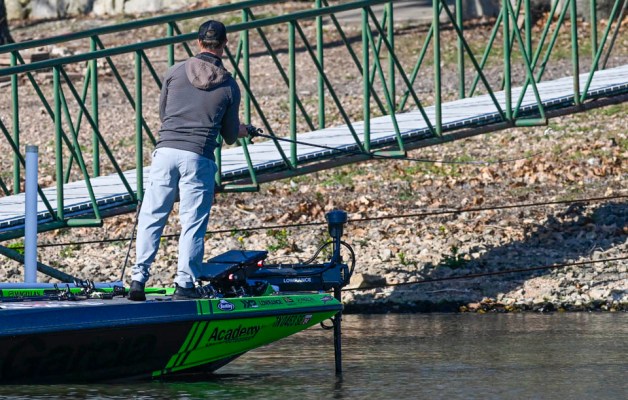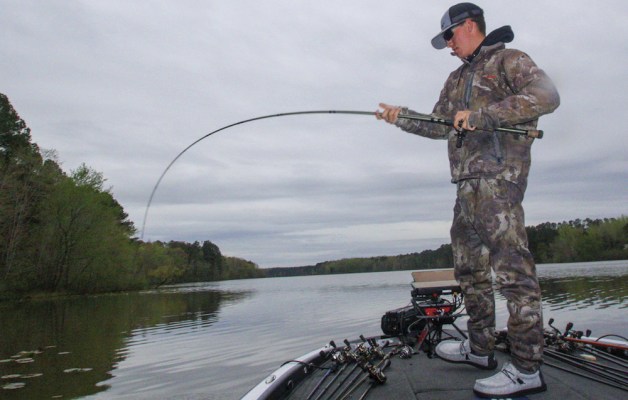
Boyd Duckett's apparent sudden rise from regional standout to Bassmaster Open competitor to Bassmaster Classic champion didn't happen overnight.
For years he plied his craft at all rungs of the tournament fishing ladder, accumulating knowledge, techniques and strategies that have made him a consistent competitor on the Elite Series trail. The biggest lesson he's learned is that the "why?" doesn't matter but "how?" does.
"What you start to recognize is the intuition to achieve what is absolutely necessary," he says. "Elite Series pros have a knowledge base that we rely on, but we don't spend much time worrying about why it happens. That's why you see pros catch fish on non-conventional patterns at everybody's local lake that we go to," explains Duckett.
"Let me tell you something about every fishing pro I've ever met," he continues. "We start our fishing careers with little to no knowledge. We do things 'just because.' We catch them sometimes and we're not really sure why, but we're willing to try everything. We're very open-minded as amateurs because we don't know any better."
Duckett says that as novice anglers begin to acquire more knowledge about the sport, they tend to complicate things. That's where most weekend anglers, Federation Nation level competitors and even Weekend Series or Open-level pros get into trouble.
"When an angler gets to that level, he or she has acquired so much knowledge that they can tell you every manufacturer of every bait," Duckett says. "They can tell you why bass hit white baits when they do, why they hit black when they do. What pH means, what thermocline means, what shad do, what crawfish do."
As a result of that knowledge base, tournament competitors shoot themselves in the foot by overthinking the situations they face. Duckett offered an example of how these "walking encyclopedias" undermine their own efforts: "This angler is going to study more theory and worry himself sick about why the water is stained and it's slightly clearing and the temperature dropped and there's a front blowing through. He's not going to do what the Skeet Reese does — just tie on a spinnerbait and say 'They hit that one so I'll keep throwing it.'"
Sometimes it pays to just keep it simple that way.
He said that he can see young pros ready to make the leap achieve that goal when they're willing to accept something without questioning the infinite details.
"Instead of spending all that mental energy to process why things happen, the angler is just willing to accept the fact that it happens, and move on and devote that mental energy to something that serves him better for competitive fishing," Duckett says. "He doesn't know the name of anything or when new products come out and he doesn't care, because all that really matters is whether the bass eat or not."
This transition is not as easy to make as it sounds, but it's critical to taking that next step. Duckett says he tries to drive this point home time and time again at seminars, when aspiring pros ask him detailed questions about some arcane matter. He boils it down as follows: "If they'll eat your green frog with a yellow bottom, throw it. Don't worry about why the bass are eating it. You've already uncovered all that you're searching for."
Words to live by.





